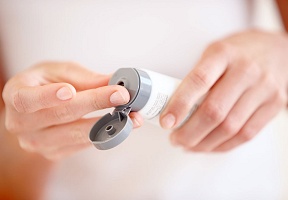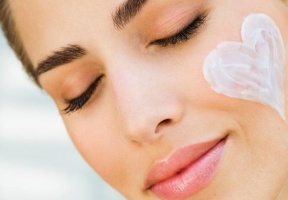

You’re all set for a fun day in the sun with your wide-brimmed hat to shield you from the UV rays, and you have given your waterproof SPF 30 or higher plenty of time to absorb into your skin. To play it safe, you have brought more suntan lotion to reapply after swimming or sweating. You are a dermatologist’s dream- or so you think. Have you given any thought to what you applied to your skin the night before or that morning before your set out for your day? The answer is you probably have not if you have concocted a skincare regimen that works for your skin type. We turned to Dr. Manish Shah, a Board- Certified Denver, Colorado plastic surgeon to reveal what types of products/ingredients sun worshippers should avoid and what can serve as safe substitutes.
Topical Acids Alpha and Beta Hydroxy Acids such as Glycolic, Lactic, and Salicylic Acids can cause the skin to be more susceptible to sun damage from being regularly exfoliated. These ingredients are commonly used in anti-aging, skin-brightening, and acne-fighting products.
Alternative: While AHAs and BHAs only cause minimal photosensitivity, you wouldn’t want to risk feeling that stinging sensation on your face. There are alternatives. Azelaic acid, found in wheat, rye and barley—comes in handy during the day as it is useful in the treatment of acne, rosacea, melasma and post-inflammatory hyperpigmentation and is not associated with the sun-induced reaction.
Hydroquinone – Typically used in skin-lightening products. Although hydroquinone is stable in sunlight, it’s not advisable to use it during the day as the sun’s skin-darkening effects are stronger than hydroquinone’s bleaching effect. Additionally, hydroquinone actually reduces your body’s ability to create enough pigment to protect you from UV rays.
Alternative: Vitamin C is an excellent alternative to hydroquinone, as it is an antioxidant and combats dark spots while also having anti-inflammatory and anti-aging properties.
Retinol and Retinol Derivatives encourage cell turnover, which exposes delicate, new skin. These newer layers of skin can be more sensitive to the sun. With enough sunscreen protection, newer formulations of retinol can be safely used during the day, but experts still advise limiting its use to nighttime especially for those who have sensitive skin.
Alternative: Bakuchiol is the new, clinically proven “natural retinol,” a powerful plant-based retinol alternative that decreases skin sensitivity to the sun. It is derived from the leaves and seeds of the babchi plant and helps to heal, calm and soothe the skin, via its anti-inflammatory and antibacterial properties.
Manish Shah, M.D., F.A.C.S. was born in Canada and raised in the Washington, D.C. area. He graduated with honors from the University of Pennsylvania, receiving a degree in biomedical engineering.










